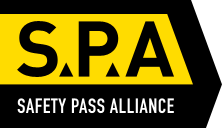11 October 2018
A Scottish quarry operator must pay £30,000 after its failure to prevent a maintenance worker from accessing a conveyor belt on an unisolated screener unit resulted in severe injuries to his hand and arm.

The Health and Safety Executive (HSE) found that MacAulay Askernish, which operates Askernish Quarry on the Isle of South Uist, had failed to install an adequate guard on the screener unit and did not isolate dangerous moving parts while the maintenance work was carried out on 2 November 2016.
Maintenance worker Donald Campbell was able to lean through the opening in the screener’s conveyor frame to fix a slipping belt. His hand was pulled into the nip point between the machine’s drive drum and conveyor belt and his arm became entangled, causing severe injury and permanent disfigurement.
HSE inspectors also found that MacAulay Askernish, which offers plant hire, carries out civil projects and provides utility services to the public sector, most notably for Scottish Water, had failed to ensure the unit was maintained properly. Officers found other guard panels were not in place on the machinery.
MacAulay Askernish, of Hillside Office, Lochboisdale, Isle of South Uist, pleaded guilty to breaching reg 6(1) of the Quarries Regulations 1999 at Lochmaddy Sheriff Court.





















